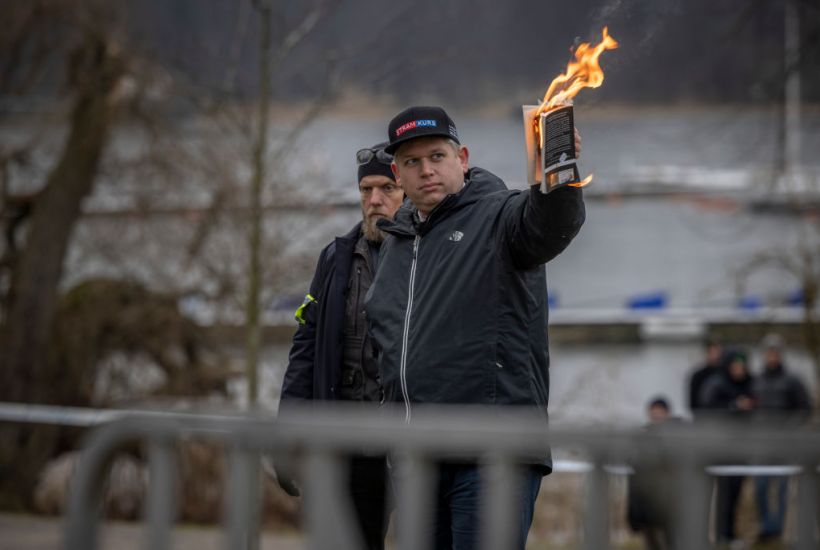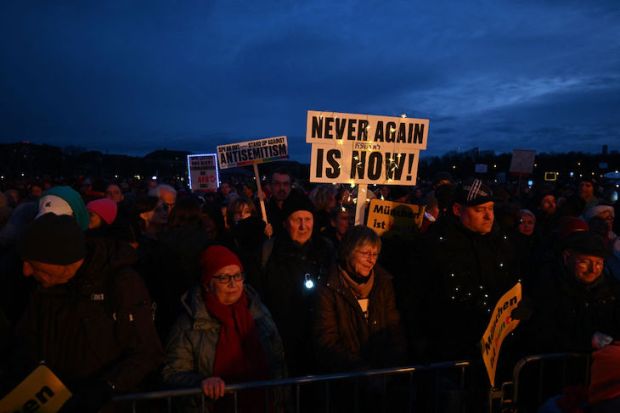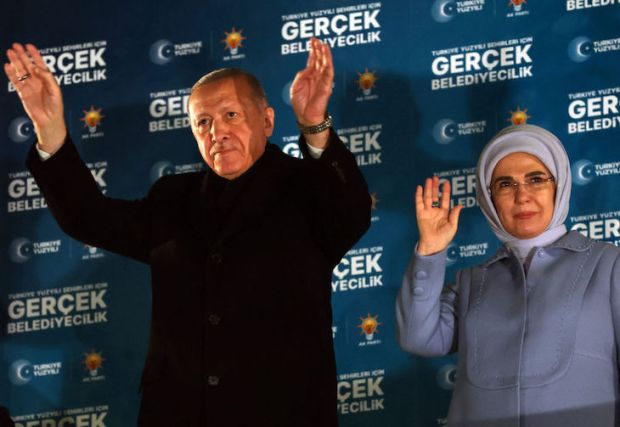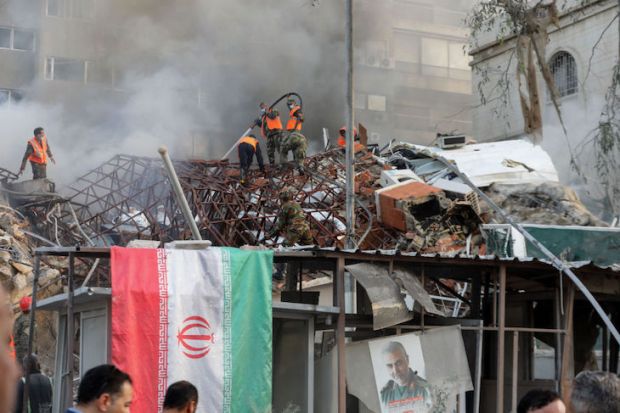A crowd gathered outside Turkey’s embassy in Stockholm on Saturday afternoon to watch far-right politician Rasmus Paludan burn the Quran. Paludan, who leads the anti-Islam ‘Hard Line’ Danish party, was watched by dozens of photographers, police officers and bemused passers-by. Paludan is no stranger to controversy: he has previously been convicted under racism and defamation law. This latest stunt was called to show his party’s opposition to immigration and, he says, to stand up for free speech. Now, though, the stunt has become a diplomatic crisis for Sweden – and there are fears that its bid to join Nato could go up in smoke.
Sweden is in the middle of trying to end its historic policy of neutrality and join the military alliance, along with its neighbour Finland. While the US, UK and want the two Nordic democracies to be part of Nato, Turkey is holding out its support, and has repeatedly threatened to veto both countries’ applications. President Recep Tayyip Erdogan’s government says Sweden hasn’t done enough to crack down on exiled pro-Kurdish ‘terror groups’ operating in the country. As party of a deal signed by Sweden and Finland last summer in exchange for Turkey’s support in their Nato applications, the two countries said they would extradite more than 70 Kurds accused of extremism. Erdogan says they have been slow to act.
Days before Paludan’s protest, the Turkish government summoned the Swedish ambassador to demand that the planned demonstration be banned. It would be a ‘hate crime’ and a ‘provocation’, he was told. Turkey then announced that it had cancelled an upcoming meeting with Sweden’s defence minister to discuss its Nato application.
‘At this point, the visit has lost all meaning and purpose,’ his Turkish counterpart Hulusi Akar said. Stockholm’s local police let the protest go ahead, saying Sweden has ‘strong protection’ for free expression in its constitution. Sweden’s foreign minister, Tobias Billstrom, said that, having given Paludan a permit to protest, it would be ‘inappropriate’ for the government to stop him.
Unsurprisingly, Erdogan saw things differently. He says Sweden’s hopes of joining Nato could be more or less over. ‘Those who allow such blasphemy in front of our embassy can no longer expect our support for their Nato membership,’ he warned on Monday. Pictures of Paludan were torched by angry crowds outside Sweden’s stately consulate in Istanbul, where a large digital sign shows the Ukrainian flag as a symbol of opposition to Russia’s war. The consulate has now been temporarily closed, and Swedish nationals in Turkey advised to avoid crowds.
At home, the Swedish government is also now rowing back its defence of free speech. ‘Freedom of expression is a fundamental part of democracy,’ prime minister Ulf Kristersson tweeted. ‘But what is legal is not necessarily appropriate. Burning books that are holy to many is a deeply disrespectful act.’ Swedes are desperate for Nato’s protection to ensure that what happened to Ukraine can’t happen to them.
When Turkey joined Nato in 1952, at the height of the Cold War, it gave the western alliance effective control over the Bosphorous Strait, a narrow and strategic waterway that runs through Istanbul and connects the Mediterranean to the Black Sea and the south coast of the former Soviet Union. Last year, after Russia invaded Ukraine, Ankara closed off the strait to warships, preventing Moscow from bringing in more naval forces to support its war.
Turkey was an important Nato member when it joined, and it has only got more powerful since. Erdogan has become an important mediator for talks between Russia and Ukraine, with the two sides meeting several times in Turkey to discuss a potential peace deal and details of prisoner exchanges. Last summer, as food prices rocketed and there were fears of famines across the developing world, Ankara cut a deal that unblocked Ukraine’s south coast ports and saw Turkish destroyers accompany grain ships through a mine-strewn Black Sea.
At the same time, though, Erdogan has allowed Russian money to continue to flow through Turkey and has made it easier for Moscow’s banks to operate there, in contravention of global sanctions. Facing a major economic crisis at home, he has done deals with the Kremlin to bring in cheap oil and gas. Erdogan has even agreed to an offer from Vladimir Putin to turn his country into a hub for Russian fossil fuels, circumventing embargoes and selling supplies on to European countries at a premium.
The way Erdogan works has made European governments question whether Turkey really sides with the West, or with Russia. In reality, it does neither. Turkey’s value to both has almost never been higher, and Erdogan knows he can leverage this to get what he wants. With a critical election scheduled for May, a Scandinavian far-right party has given Erdogan the opportunity to show his conservative support base that he is standing up for Islamic values.
Rasmus Paludan’s Quran burning might have been an exercise in free speech, but it could now be his country that pays the price. How far will Sweden will go to secure its place in Nato?
Got something to add? Join the discussion and comment below.
Get 10 issues for just $10
Subscribe to The Spectator Australia today for the next 10 magazine issues, plus full online access, for just $10.




















Comments
Don't miss out
Join the conversation with other Spectator Australia readers. Subscribe to leave a comment.
SUBSCRIBEAlready a subscriber? Log in